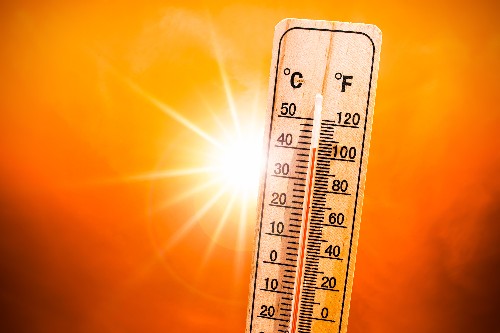A new report reveals increasing health dangers posed by long-term weather extremes in the UK
As temperatures climbed uncharacteristically high this past summer, residents of the UK were reminded that record-breaking heat is no longer an aberration but a symptom of a deepening climate crisis. In Bristol, a city notorious for its temperate climate, many felt the effects of prolonged heat waves, from unshakable fatigue to disrupted sleep patterns. Little did they know, these discomforts signal far more insidious health threats. An unprecedented report published today in The Lancet Planetary Health draws attention to the alarming health consequences tied to extreme weather patterns, marking a pivotal moment in understanding climate change’s impact on public health.
Unpacking the Health Risks
Led by the University of Bristol, the review comprises a coalition of climate scientists, meteorologists, public health experts, and epidemiologists who spotlight the interconnected ramifications of sustained exposure to weather extremes. While prior studies typically isolated specific conditions, such as heat-related mortality, this new assessment canvasses a broader spectrum of health challenges. Professor Dann Mitchell, a principal author and renowned climate scientist, highlights the potentially grim consequences: “Long-term exposure to changing weather patterns may not only increase mortality rates but also create a multifaceted burden of disease that has eluded our climate risk assessments.”
Key Findings
- Mental Health: Increased frequencies of hot and cold spells have been linked to exacerbations in anxiety and depression, with prolonged heat suggested to intensify sleep disorders associated with cognitive decline.
- Physical Health: Studies show prolonged periods of extreme temperatures heighten the likelihood of renal diseases and even skin cancer.
- Injuries: Cold weather, particularly among the elderly, has been associated with a spike in fall-related injuries, often leading to hospitalizations.
Amid growing concerns about the impact of extreme temperatures, the report emphasizes how hotter nights disrupt circadian rhythms, leading to sleep deprivation that could accelerate cognitive decline and conditions like Alzheimer’s disease. “Heat does not merely represent discomfort. It may herald complex health complications long overlooked,” said Dr. Eunice Lo, a co-author and Research Fellow at the University’s Cabot Institute for the Environment. “The data suggests that chronic heat stress could worsen preexisting health issues; we’re only beginning to grasp the magnitude of this problem.”
Broader Implications for Public Health
The repercussions of climate-related health burdens extend far beyond individual suffering. The study indicates potential public health crises exacerbated by extreme weather conditions. “A system in which health and climate science work in tandem is crucial for effective public health planning,” noted Professor Mitchell. “The findings provide a framework for understanding how interconnected factors, influenced by climate change, can create synergies in health deterioration.”
A New Methodology
Breaking new ground, the review not only compiles existing knowledge but also fosters an interdisciplinary dialogue aimed at future investigations into climate-induced health consequences. “This collective expertise enables us to derive cross-sectional insights, paving the way for similar analyses in other countries,” Dr. Lo added. For instance, the methodologies employed here may help assess health burdens in regions facing differently manifested weather extremes, further extending understanding of the global health implications of climate change.
Moreover, the research distills complex interactions into manageable insights, highlighting the pressing need for comprehensive climate-health frameworks that can better inform public policy and healthcare strategies.
“With every extreme weather event we experience, the health risks multiply,” warned Dr. Alice Farrow, a mental health specialist whose research aligns with the report’s findings. “We cannot afford to view these as isolated incidents; they represent a trend threatening our collective well-being.”
Looking Ahead
As Britain braces for more erratic weather patterns, the imperative grows clearer: an integrated approach moving forward is vital. The research demonstrates the need for ongoing studies that peak past traditional health metrics to understand long-term associations between weather and health outcomes. Dr. Lo underscored this point: “We’re gathering more data, and with it, clearer models that can elucidate associations between weather exposure and health consequences. This is an urgent call to action for public health researchers.”
As families across the UK grapple with sleepless nights during sweltering summers and the biting cold of winter, the specter of climate change lurks, raising questions about their health that cannot be ignored. With this expansive assessment, the University of Bristol leads the charge toward a fuller understanding of how climate change reshapes health landscapes, calling for adaptive strategies that safeguard future generations.
Source: www.bristol.ac.uk


